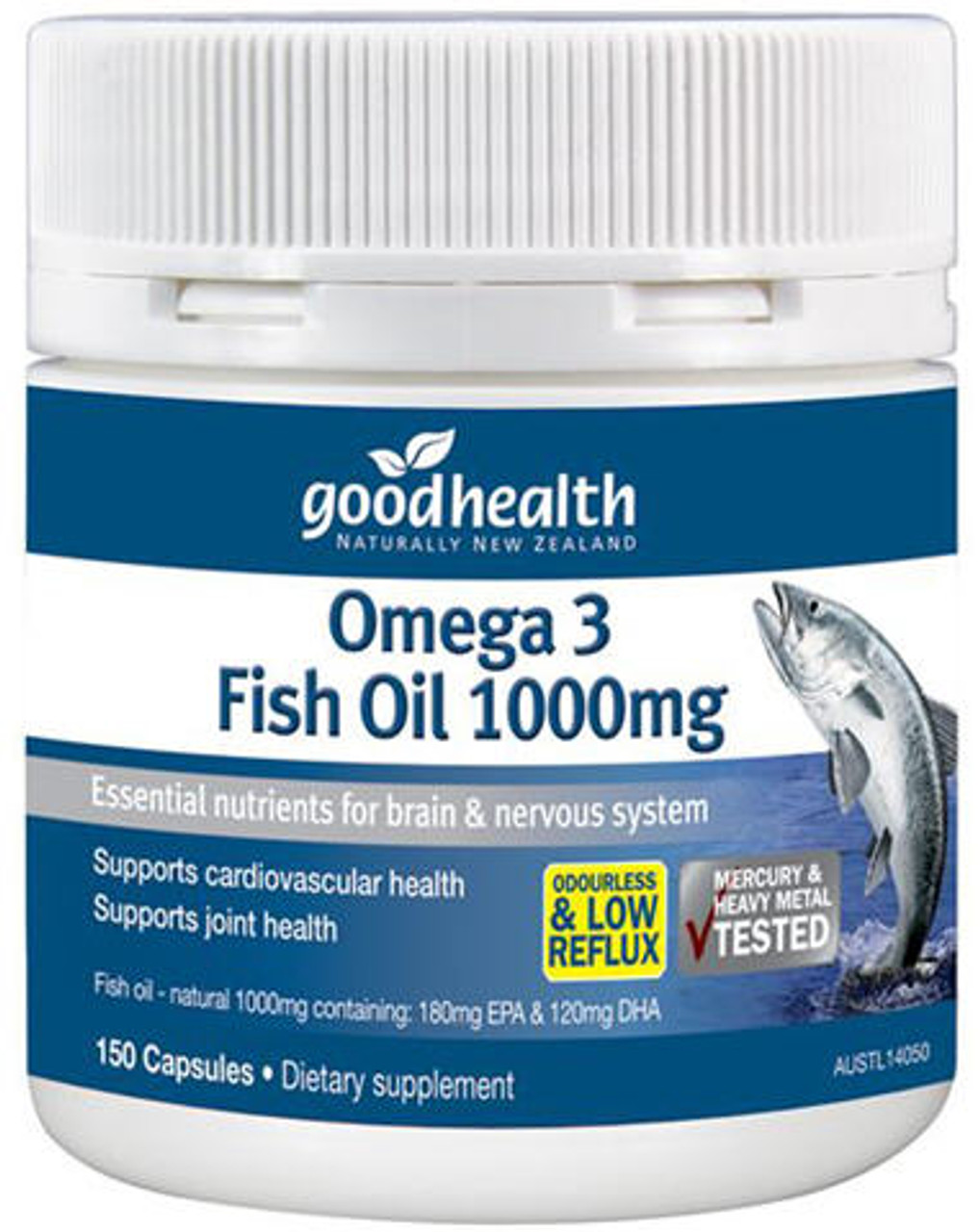Good Health Omega-3: Nourishing Your Body Inside Out
Introduction
In the pursuit of a healthy lifestyle, one cannot overlook the pivotal role of Omega-3 fatty acids. These essential nutrients not only contribute to overall well-being but also play a crucial role in various bodily functions. Let's delve into the world of Omega-3 and explore how incorporating them into your daily life can lead to good health.
Types of Omega-3 Fatty Acids
ALA (Alpha-Linolenic Acid)
Alpha-Linolenic Acid is a plant-based Omega-3 found in flaxseeds, chia seeds, and walnuts. While it's a precursor to EPA and DHA, its conversion rate in the body is limited.
EPA (Eicosapentaenoic Acid)
Eicosapentaenoic Acid, commonly found in fatty fish, contributes to heart health and helps in managing inflammation.
DHA (Docosahexaenoic Acid)
Docosahexaenoic Acid is crucial for brain function and is particularly abundant in the retina. It is commonly found in fatty fish and algal oil supplements.
Sources of Omega-3
Fatty Fish
Fish like salmon, mackerel, and trout are rich sources of Omega-3, providing a concentrated dose of EPA and DHA.
Flaxseeds and Chia Seeds
For those following a plant-based diet, flaxseeds and chia seeds are excellent sources of ALA, ensuring a steady intake of Omega-3.
Walnuts
Incorporating walnuts into your diet not only adds a delightful crunch but also boosts your Omega-3 intake.
Algal Oil Supplements
Algal oil supplements are a vegan-friendly option, providing a direct source of DHA derived from algae.
Health Benefits of Omega-3
Heart Health
Omega-3 fatty acids contribute to heart health by reducing triglycerides, lowering blood pressure, and preventing plaque buildup in arteries.
Brain Function
DHA, a major component of the brain, supports cognitive function, helping maintain optimal brain health.
Joint Health
Omega-3's anti-inflammatory properties benefit joint health, potentially reducing the risk of conditions like arthritis.
Skin Benefits
Omega-3 promotes healthy skin by supporting moisture retention and reducing inflammation, leading to a radiant complexion.
Omega-3 and Mental Well-being
Role in Cognitive Function
The brain's high DHA content underscores the importance of Omega-3 in supporting cognitive functions such as memory and concentration.
Omega-3 and Mood Stabilization
Research suggests a link between Omega-3 intake and mood regulation, making it a potential ally in managing stress and anxiety.
Recommended Omega-3 Intake
Daily Recommended Values
Understanding the recommended daily intake helps ensure you're reaping the full benefits of Omega-3 for your health.
Considerations for Different Age Groups
Tailoring Omega-3 intake based on age ensures that individuals at different life stages receive the appropriate nutritional support.
Incorporating Omega-3 Into Your Diet
Delicious Omega-3 Rich Recipes
From grilled salmon to chia seed pudding, there are numerous delicious recipes to make incorporating Omega-3 into your diet a delight.
Tips for Choosing Omega-3 Supplements
When opting for supplements, understanding the different types and their EPA and DHA content is crucial for making informed choices.
Common Myths About Omega-3
Myth: All Fats Are Bad
Dispel the myth that all fats are detrimental to health by emphasizing the distinction between healthy fats like Omega-3 and saturated fats.
Myth: Fish Oil Causes Fishy Aftertaste
Addressing common concerns, we explore ways to minimize or eliminate the fishy aftertaste often associated with fish oil supplements.
Choosing the Right Omega-3 Supplement
Quality Matters
Not all supplements are created equal. Understanding the importance of quality ensures you get the maximum benefits from your Omega-3 supplement.
Reading Labels for EPA and DHA Content
Deciphering supplement labels empowers you to choose products with the right balance of EPA and DHA for your specific health goals.
Omega-3 and Exercise Performance
Enhancing Endurance
Discover how Omega-3 can boost endurance, making it an excellent supplement for individuals engaged in regular physical activity.
Reducing Exercise-Induced Inflammation
The anti-inflammatory properties of Omega-3 can aid in minimizing inflammation associated with intense exercise, supporting faster recovery.
Omega-3 for Special Populations
Pregnancy and Omega-3
Expectant mothers can benefit from Omega-3 for fetal development and maternal well-being.
Omega-3 for Children
Understanding the role of Omega-3 in child development highlights its importance in nurturing growing minds.
Risks and Side Effects
Potential Interactions with Medications
It's crucial to be aware of potential interactions between Omega-3 supplements and certain medications to ensure safe consumption.
High Dosages and Complications
Like any nutrient, excessive intake of Omega-3 can lead to complications. Understanding optimal dosage is key to reaping benefits without risks.
Incorporating Omega-3 Into Everyday Life
Quick and Easy Ways to Boost Omega-3 Intake
Practical tips for seamlessly incorporating Omega-3 into your daily routine, making it a sustainable lifestyle choice.
Making Informed Food Choices
Knowledge is power. Armed with information, make informed food choices that prioritize Omega-3-rich options for long-term health.
Storing and Cooking Omega-3 Rich Foods
Best Practices for Cooking Fish
Preserving the nutritional value of fish involves adopting specific cooking techniques that retain Omega-3 content.
Storing Flaxseeds and Nuts
Proper storage ensures that your pantry staples like flaxseeds and nuts maintain their freshness and nutritional potency.
Conclusion
In the journey to good health, Omega-3 emerges as a star player, offering a multitude of benefits for the heart, brain, joints, and skin. By understanding the various facets of Omega-3, you empower yourself to make choices that prioritize your well-being. So, go ahead, embrace the goodness of Omega-3, and let your health thrive.
FAQs
- Can I get enough Omega-3 from plant-based sources? Absolutely! Incorporating flaxseeds, chia seeds, and walnuts into your diet can provide a sufficient amount of Alpha-Linolenic Acid (ALA).
- Are there any side effects of Omega-3 supplements? While Omega-3 supplements are generally safe, excessive intake can lead to complications such as bleeding issues. It's crucial to follow recommended dosages.
- How does Omega-3 benefit skin health? Omega-3's anti-inflammatory properties contribute to healthy skin by reducing inflammation, supporting moisture retention, and promoting a radiant complexion.
- Is it safe to consume Omega-3 during pregnancy? Yes, Omega-3 is beneficial during pregnancy for fetal development and maternal well-being. However, consult with a healthcare professional for personalized advice.
- Can Omega-3 help with joint pain? Yes, the anti-inflammatory properties of Omega-3 can contribute to reducing joint pain and supporting overall joint health.
Unlocking the Heart Health Benefits of Omega-3 Fatty Acids: A Comprehensive Review
In the realm of cardiovascular health, the role of fish oil and its potential to safeguard against heart attacks and reduce heart-related mortality has recently come under renewed scrutiny. Let's delve into the latest findings and insights surrounding omega-3 supplements, exploring their impact on heart health and debunking myths.
Fish Oil vs. Heart Attacks: Breaking Down the Latest Research
Unveiling the Japanese Insight: A Superior Defense Against Heart Attacks
Recent research in Japan reveals that fish oil, a natural treasure trove of Omega-3, offers a remarkable shield against heart attacks, outperforming even statins. The source of the fish oil matters, ensuring a clean and safe product that maximizes benefits.
Decoding the Cardiovascular Benefits of Omega-3 Fatty Acids
While the general consensus recognizes the positive effects of fish oil on heart health, understanding the specifics remains elusive for many. Clinical trials have spotlighted omega-3 fatty acids derived from fish oil, showcasing their potential cardiovascular advantages.
The American Heart Association's Perspective on Fish Oil
Secondary Prevention: Fish Oil Capsules for Heart Health
Fish oil supplements have gained immense popularity, endorsed by the American Heart Association (AHA) for secondary prevention, aiming to thwart a second heart attack or stroke. The AHA's recommendation sheds light on the broader impact of fish oil on heart health.
Omega-3s: A Panacea for Both Healthy and At-Risk Individuals
Contrary to some skepticism, studies demonstrate that the benefits of omega-3 fatty acids extend to both healthy individuals and those with a history of heart disease. The potential for reducing cardiovascular events, especially in high-risk populations, is a compelling aspect.
Navigating Contradictions: Recent Studies on Fish Oil
Clashing Perspectives: The Yin and Yang of Fish Oil Studies
Recent studies have presented conflicting conclusions regarding the efficacy of fish oil in preventing heart disease. Delving into these contradictory findings, we aim to unravel the nuances and provide a clearer perspective on the impact of fish oil on heart health.
Beyond Heart Health: Exploring Fish Oil's Varied Impacts
Fish Oil and Beyond: Widening the Scope of Benefits
While the focus primarily rests on heart health, it's crucial to acknowledge that fish oil's influence extends beyond cardiovascular matters. From potential cancer reduction to overall well-being, the holistic impact of fish oil warrants exploration.
Clearing the Fog: Addressing Common Misconceptions
Dispelling Myths: The Truth About Fish Oil
Despite widespread popularity, fish oil supplements have faced scrutiny. We aim to dispel myths and provide clarity on the cardiovascular benefits of omega-3 fatty acids, separating fact from fiction.
The Future of Heart Health: Integrating Fish Oil into Preventive Measures
A Promising Ally: Fish Oil's Role in Future Preventive Strategies
As research progresses, the integration of fish oil into preventive measures against heart-related events becomes more evident. The potential synergy with cholesterol-lowering drugs opens new avenues in the ongoing battle against heart disease.
Conclusion: Navigating the Seas of Heart Health
In conclusion, the waters of heart health are dynamic, with fish oil emerging as a promising ally in the pursuit of cardiovascular well-being. By understanding the nuances of recent studies, dispelling misconceptions, and embracing the broader spectrum of benefits, individuals can make informed choices for a heart-healthy lifestyle.



